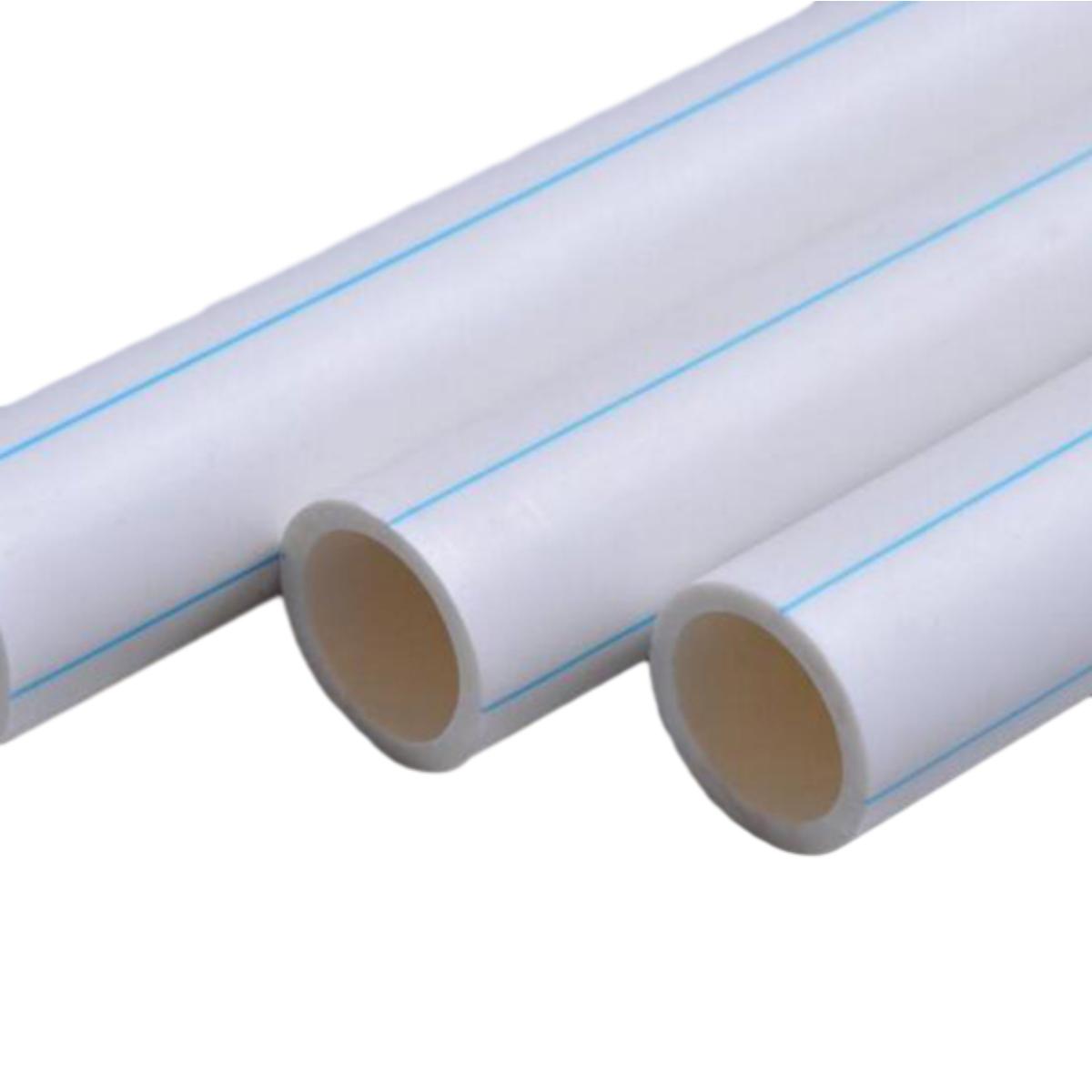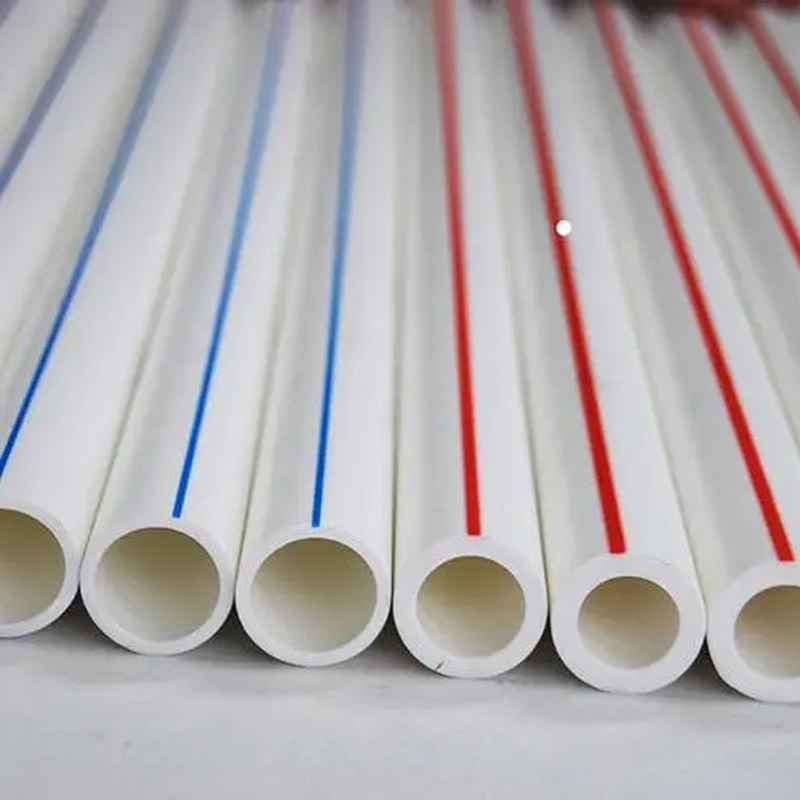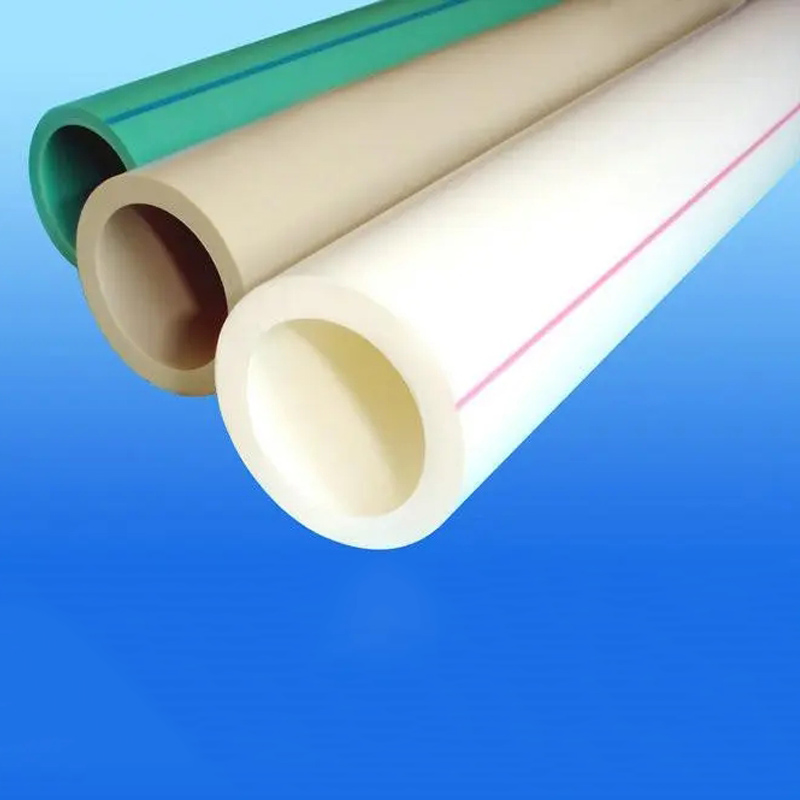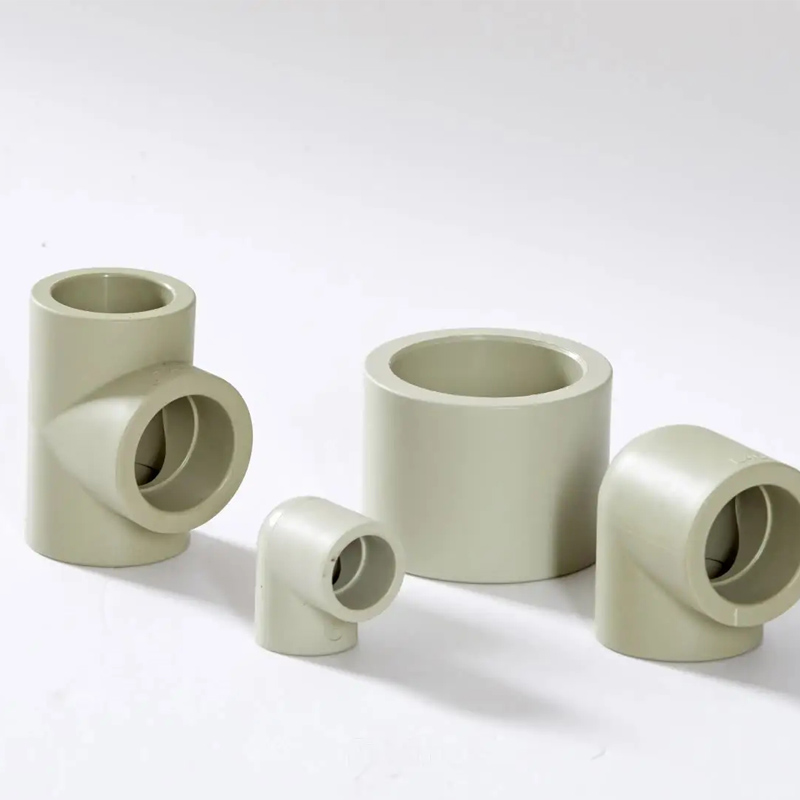Sep . 01, 2025 03:20 Back to list
Durable, Safe DN25 PPR Water Pipes for Kitchen Use.
The Evolution of Kitchen Plumbing: Focusing on High-Performance PPR Solutions
In modern commercial and industrial kitchens, the demands on plumbing infrastructure are exceptionally high, requiring materials that can withstand rigorous conditions, ensure safety, and offer long-term reliability. Polypropylene Random Copolymer (PPR) pipes have emerged as a superior solution, particularly the DN25 PPR water pipes for kitchen. This specific dimension is critically important for maintaining adequate flow rates in high-demand environments, preventing bottlenecks, and ensuring efficient operation. The industry is rapidly shifting towards advanced polymer piping systems due to their inherent advantages over traditional metallic options, driven by factors such as enhanced hygiene, corrosion resistance, and simplified installation.
Current industry trends highlight a strong emphasis on sustainability, energy efficiency, and compliance with stringent health and safety regulations. PPR systems align perfectly with these trends by offering excellent thermal insulation properties, reducing energy losses in hot water distribution, and being manufactured from non-toxic materials that do not leach harmful substances into the water. This makes them ideal for applications ranging from large-scale catering facilities and restaurant chains to food processing plants and institutional kitchens, where water purity and operational integrity are paramount.
Precision Manufacturing: The Process Behind Robust PPR Pipes
The quality and reliability of DN25 PPR water pipes for kitchen are rooted in a meticulous manufacturing process that adheres to global standards. The core material, Polypropylene Random Copolymer, is selected for its superior thermal stability, chemical resistance, and non-toxicity. The process flow typically involves several critical stages:
- Material Preparation: High-grade PPR granules, along with necessary additives (stabilizers, antioxidants, pigments), are precisely measured and mixed to ensure homogeneity and optimal material properties. This step is crucial for the pipe's long-term performance and durability.
- Extrusion: The prepared raw material is fed into an extruder, where it is heated and melted. A screw mechanism then forces the molten PPR through a die, forming the continuous pipe profile. This process requires precise temperature and pressure control to achieve consistent wall thickness and diameter.
- Cooling and Sizing: Immediately after extrusion, the hot pipe enters a vacuum calibration tank, where it is cooled using water while external pressure ensures the correct dimensional stability (DN25 in this case). Further cooling tanks solidify the material completely.
- Haul-off and Cutting: A haul-off unit pulls the pipe at a controlled speed through the cooling baths. A cutting machine then precisely cuts the continuous pipe into predetermined lengths.
- Quality Control and Testing: Every batch undergoes rigorous testing to comply with international standards such as ISO 15874 (Plastics piping systems for hot and cold water installations - Polypropylene) and local certifications. Tests include hydrostatic pressure testing (internal pressure resistance), impact resistance, melt flow rate, thermal cycling tests, and dimensional accuracy checks (e.g., wall thickness, outer diameter for DN25). Non-destructive testing methods are also employed to detect any internal flaws.
This stringent process ensures a service life often exceeding 50 years under normal operating conditions, making them a highly cost-effective and reliable choice for critical water supply and drainage systems in target industries such as commercial food service, hospitality, and institutional plumbing. The emphasis on corrosion resistance and energy saving through superior insulation reduces operational costs significantly.

Technical Specifications and Parameters of DN25 PPR Water Pipes
The performance of DN25 PPR water pipes for kitchen is defined by a set of precise technical specifications that ensure compatibility, safety, and operational efficiency. The designation "DN25" refers to a nominal diameter of 25mm, which is standard for many commercial and high-demand residential water lines. The material's inherent properties, coupled with precise manufacturing, contribute to its robust characteristics.
Key Product Specifications Table
| Parameter | Value/Description |
|---|---|
| Nominal Diameter (DN) | DN25 (25 mm) |
| Outer Diameter | Approx. 32 mm |
| Material | Polypropylene Random Copolymer (PPR-Type 3) |
| Pressure Rating (PN) | PN20 (20 bar / 2.0 MPa) standard, PN25 available |
| Operating Temperature Range | -5°C to +95°C (briefly up to 100°C) |
| Coefficient of Linear Expansion | 0.15 mm/m·K (significantly lower than PVC) |
| Thermal Conductivity | 0.24 W/m·K (Excellent insulation properties) |
| Roughness Coefficient | 0.007 mm (Extremely smooth inner surface) |
| Density | 0.9 g/cm³ |
| Standard Compliance | ISO 15874, DIN 8077/8078, CE, ASTM F2389 |
These specifications underscore the suitability of PPR for demanding applications. The low thermal conductivity minimizes heat loss in hot water systems, leading to substantial energy savings, while the smooth inner surface prevents calcification and bacterial growth, maintaining water quality and flow efficiency over decades. The high-pressure rating ensures resilience in varying operational conditions common in commercial kitchen environments.

Technical Advantages in Kitchen Plumbing
The advantages of employing DN25 PPR water pipes for kitchen installations are multifaceted, addressing critical concerns for B2B decision-makers and engineers:
- Superior Corrosion Resistance: Unlike metallic pipes, PPR is completely immune to galvanic and electrolytic corrosion, rust, and scale build-up. This eliminates the risk of contaminated water, ensures consistent flow rates, and extends the system's lifespan significantly.
- Excellent Thermal Insulation: PPR's low thermal conductivity (0.24 W/m·K) means less heat loss in hot water lines and minimal condensation on cold water lines. This translates directly into energy savings for heating systems and reduced moisture-related issues, critical in kitchen environments where various temperatures are managed.
- Hydgienic and Non-Toxic: Manufactured from environmentally friendly and food-grade materials, PPR pipes do not leach heavy metals or other harmful substances into the water, ensuring pure and safe potable water. This is vital for food preparation areas, adhering to strict health standards.
- High Pressure and Temperature Resistance: Designed to perform reliably under high pressures (up to PN20/25) and temperatures up to 95°C, PPR pipes are suitable for continuous hot water circulation systems, common in commercial kitchens.
- Smooth Inner Surface: The extremely smooth interior prevents friction loss, significantly reduces pressure drops, and inhibits the formation of biofilms and calcification. This maintains optimal flow characteristics and minimizes maintenance requirements.
- Long Service Life: With an expected service life of over 50 years under correct installation and operating conditions, PPR systems offer a low total cost of ownership over their lifecycle.
- Ease of Installation: PPR pipes utilize heat fusion welding, creating homogeneous, leak-proof joints stronger than the pipe itself. This process is quick, clean, and requires fewer fittings compared to threaded metallic systems, reducing labor costs and installation time.
These technical advantages make PPR a strategic choice for any demanding hot and cold water distribution system, particularly in high-volume, critical environments like commercial kitchens where reliability and hygiene are non-negotiable.
Application Scenarios for DN25 PPR Water Pipes
The versatility and robustness of DN25 PPR water pipes for kitchen applications extend across a broad spectrum of commercial and industrial settings, where reliable and hygienic water distribution is paramount.
- Commercial Kitchens and Restaurants: Ideal for hot and cold potable water supply to sinks, dishwashers, industrial cooking equipment, and ice machines. The pipes' resistance to high temperatures and harsh cleaning chemicals makes them perfect for this demanding environment.
- Hotels and Hospitality: Used extensively in guest room plumbing, central hot water systems, and facility management areas, ensuring consistent water pressure and temperature while minimizing energy consumption.
- Hospitals and Healthcare Facilities: Critical for potable water systems where hygiene is paramount. PPR's non-toxic nature and resistance to bacterial growth are significant advantages in maintaining sterile environments.
- Food Processing Plants: For process water, utility water, and general potable water distribution where chemical inertness and resistance to high temperatures are required during cleaning cycles.
- Industrial Water Supply & Drainage: While primarily for potable water, PPR pipes are also suitable for various industrial fluid transport systems, provided chemical compatibility is assured. They offer an energy-efficient alternative for conveying non-aggressive industrial liquids.
- Residential and Multi-Unit Dwellings: Though the focus is B2B, DN25 PPR pipes are also frequently used in larger residential projects for main supply lines to kitchens and bathrooms due to their reliability and longevity.
In each scenario, the robust design, resistance to degradation, and ease of maintenance contribute to a highly efficient and reliable plumbing infrastructure, directly impacting operational continuity and overall system performance.

Vendor Comparison: Selecting the Right Partner
Choosing a supplier for DN25 PPR water pipes for kitchen involves more than just price. B2B purchasers must evaluate vendors based on a holistic set of criteria to ensure long-term value, reliability, and support. A detailed comparison should consider manufacturing quality, certifications, customization capabilities, and after-sales service.
Key Vendor Comparison Metrics
| Metric | High-Quality Vendor (e.g., Horon Pipe) | Standard Vendor |
|---|---|---|
| Material Origin & Quality | Virgin, high-grade PPR-Type 3 from reputable suppliers, traceable. | May use recycled content or lower-grade resins; less transparency. |
| Certifications & Standards | ISO 9001, ISO 14001, ISO 45001, CE, ASTM, DIN, water safety (e.g., WRAS/NSF where applicable). | Basic ISO, limited product-specific or regional certifications. |
| Manufacturing Process | Automated extrusion, precise quality control at every stage, advanced testing. | Manual intervention, less rigorous QC, inconsistent product dimensions. |
| Technical Support & Expertise | Dedicated engineering support, installation guidance, project consultation. | Limited or no technical assistance. |
| Warranty & Service Life | Comprehensive warranties (e.g., 10-25 years), proven 50+ year service life. | Short or unclear warranties, unverified service life claims. |
| Customization Capabilities | Able to provide custom lengths, colors, or specialized fittings for project needs. | Limited to standard off-the-shelf products. |
A top-tier vendor distinguishes itself through unwavering commitment to quality, backed by transparent documentation and robust technical support. This reduces project risks, ensures compliance, and provides peace of mind for long-term investments.
Customized Solutions and Application Case Studies
Recognizing that no two B2B projects are identical, leading manufacturers of DN25 PPR water pipes for kitchen offer customized solutions. This includes:
- Project-Specific Dimensions: While DN25 is standard, some projects might require specific lengths or wall thicknesses for enhanced pressure handling beyond standard PN ratings.
- Specialized Fittings: Development of bespoke fittings for unique connection requirements or integration with existing systems.
- Color Coding: Custom colored pipes for easy identification of hot, cold, or process water lines in complex installations.
- Pre-fabricated Sections: For large projects, pre-fabricating complex pipe sections off-site can significantly reduce on-site installation time and costs.
Application Case Studies
Case Study 1: Large Hotel Kitchen Renovation
A prestigious hotel chain undertook a complete renovation of its main kitchen facilities, demanding a plumbing system that offered uncompromising hygiene, durability, and energy efficiency. They opted for a comprehensive PPR system, utilizing DN25 pipes for the main hot and cold water distribution lines to all kitchen stations, including multiple commercial sinks, industrial dishwashers, and steam ovens. The project benefited from custom-length pipe sections that minimized on-site cutting and welding, reducing installation time by 20%. Post-installation, the hotel reported significant improvements in water pressure stability and reduced energy consumption for water heating, alongside full compliance with local health codes.
Case Study 2: New Food Processing Plant
A new state-of-the-art food processing facility required a piping system capable of handling high-temperature washdowns and maintaining absolute water purity. The engineers specified DN25 PPR pipes for the entire potable water supply network due to their chemical inertness and resistance to temperatures up to 95°C. The seamless heat fusion joints ensured a completely leak-proof system, crucial for avoiding contamination risks. Regular microbial testing conducted by the plant showed no biofilm formation or water quality degradation, reinforcing the hygienic advantages of PPR over traditional metals.

Ensuring Trust and Authority: Certifications, Support, and Warranty
Building trust in the B2B sector requires demonstrable authority and commitment to customer success. A reputable supplier of DN25 PPR water pipes for kitchen stands behind its products with comprehensive support and robust guarantees.
Certifications and Authoritative References
Our products are manufactured under strict quality management systems and are certified by leading international bodies. Key certifications include ISO 9001:2015 (Quality Management), ISO 14001:2015 (Environmental Management), and ISO 45001:2018 (Occupational Health and Safety). Furthermore, our PPR pipes comply with major international product standards such as ISO 15874 for hot and cold water installations, DIN 8077/8078, and hold approvals from regional water quality authorities (e.g., WRAS for UK, NSF for North America, or equivalent for other regions). Our long-standing partnerships with global engineering firms and contractors, spanning over two decades, attest to the consistent performance and reliability of our products in diverse and demanding applications.
Lead Time and Fulfillment
We understand the critical timelines in B2B projects. Our standard lead time for stock items of DN25 PPR water pipes is typically 7-14 business days, with expedited options available for urgent requirements. For customized orders, lead times are assessed on a project-by-project basis but generally fall within 3-5 weeks from final design approval. Our robust logistics network ensures efficient and reliable delivery to your project site, minimizing delays and supporting your operational schedules.
Warranty Commitments
We offer a comprehensive 10-year warranty on all our PPR piping products, covering manufacturing defects and material integrity when installed according to our guidelines and industry best practices. This warranty underscores our confidence in the longevity and performance of our pipes, providing our clients with significant peace of mind and protection for their investment.
Customer Support and After-Sales Service
Our commitment extends beyond delivery. We provide dedicated technical support, including installation guidance, product data sheets, and troubleshooting assistance. Our team of experienced engineers is available for consultation to ensure optimal system design and problem resolution. We also offer training sessions for installation teams to ensure proper handling and fusion welding techniques, maximizing the system's performance and lifespan.
Frequently Asked Questions (FAQ)
- Q: What is the maximum operating pressure for DN25 PPR pipes?
- A: Our DN25 PPR pipes are typically rated for PN20 (20 bar / 2.0 MPa) at 20°C. They can also handle fluctuating pressures and temperatures up to 95°C with appropriate derating factors applied.
- Q: Are PPR pipes suitable for direct burial?
- A: Yes, PPR pipes are suitable for direct burial. Their chemical inertness, corrosion resistance, and robust mechanical properties make them ideal for underground installations, provided they are installed according to recommended practices, including proper backfilling.
- Q: How does the cost of PPR compare to traditional copper or galvanized steel pipes?
- A: While the initial material cost of PPR can be competitive, the significant savings come from lower installation costs (faster, simpler fusion welding), reduced maintenance due to no corrosion or scaling, and energy savings from better insulation. Over the product's 50+ year lifespan, PPR typically offers a lower total cost of ownership.
- Q: What specific tools are required for installing PPR pipes?
- A: Installation primarily requires a PPR fusion welding machine (thermofusion device), pipe cutters, and a chamfering tool. These tools are readily available and user-friendly, allowing for quick and secure joint creation.
Conclusion
The selection of plumbing materials in commercial and industrial settings, particularly for critical areas like kitchens, directly impacts operational efficiency, hygiene, and long-term cost-effectiveness. DN25 PPR water pipes for kitchen applications represent a technologically advanced and economically superior choice, offering unparalleled resistance to corrosion, exceptional thermal performance, and a robust service life. By adhering to rigorous manufacturing standards and providing comprehensive support, reputable suppliers ensure that these piping systems not only meet but exceed the demanding requirements of modern infrastructure. Investing in high-quality PPR solutions is an investment in durability, sustainability, and operational excellence for any B2B entity.
References
- International Organization for Standardization (ISO) - ISO 15874: Plastics piping systems for hot and cold water installations — Polypropylene (PP).
- German Institute for Standardization (DIN) - DIN 8077: Polypropylene (PP) pipes - PP-H 100, PP-B 80, PP-R 80, PP-RCT - Dimensions.
- American Society for Testing and Materials (ASTM) - ASTM F2389: Standard Practice for Pressure-Rated Polypropylene (PP) Piping Systems.
- Water Research Centre (WRc) - Performance Specification for Plastics Pipework for Hot and Cold Water Services.
- European Committee for Standardization (CEN) - EN ISO 1452: Plastics piping systems for water supply, and for buried and above-ground drainage and sewerage under pressure.
-
DN25 HDPE Compression Fitting: Easy, Leak-Proof Water Connectors
NewsAug.31,2025
-
Premium 32mm HDPE Pipes in Coil: Flexible, Durable, Easy Install
NewsAug.30,2025
-
Durable 140mm PVC Drilling Pipe for Water Wells & Geotechnical
NewsAug.29,2025
-
DN25 PPR Water Pipes for Kitchen: Durable, Safe, Hot Water Ready
NewsAug.28,2025
-
HDPE Tube Pipe In Coil Packaging
NewsAug.22,2025

